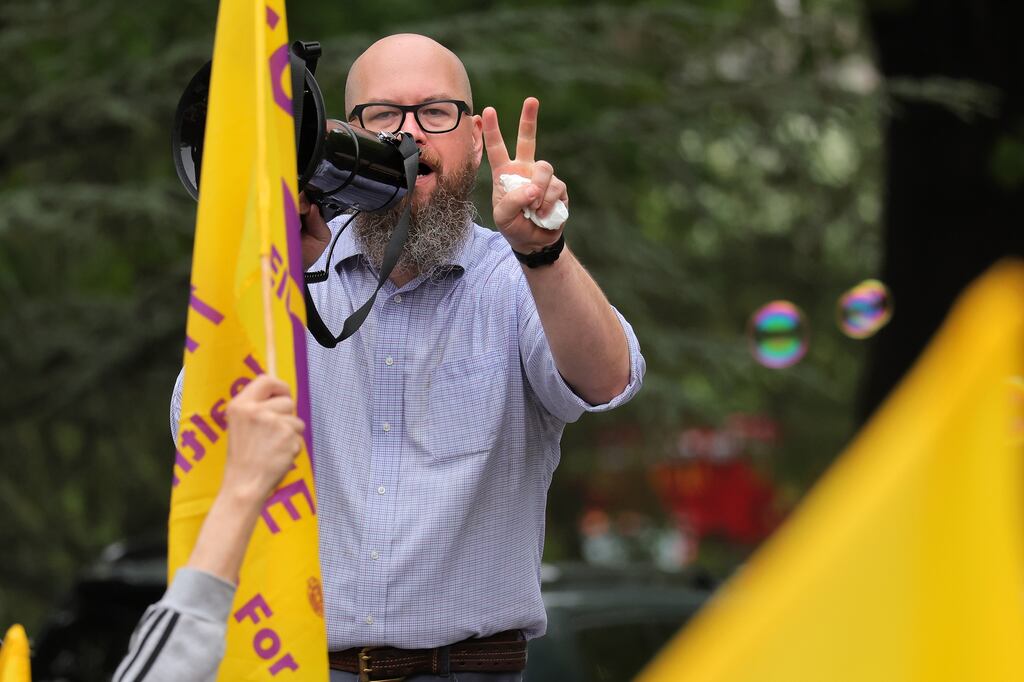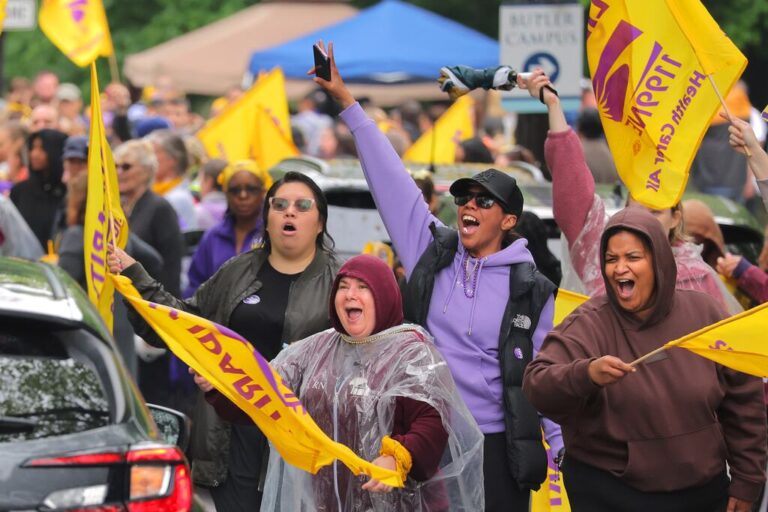PROVIDENCE — Three weeks into its nurses strike, Butler Hospital is posting job listings to permanently replace the unionized workers who have refused to cross a picket line and return to their posts. The striking workers say hospital operator Care New England has yet to settle on a fair contract with their leaders.
Mary Marran, the president and chief operating officer of the hospital, said the move was a “necessary decision.”
“We sincerely hoped this step would not become necessary,” said Marran. “We believe this action is essential to ensure continuity of patient care and maintain the stability of our services.”
Striking employees who have been permanently replaced will not be able to return to work once the strike ends. Instead, those employees will be placed on a “preferential hire list,” said Marran, and would be able to return once a position becomes available.
This is Care New England’s latest move to attempt to bring employees back to work amid the ongoing strike. The hospital system terminated workers’ health insurance effective this month, forcing hundreds to sign up for free or low-cost health insurance through the state insurance marketplace.
“Mary Marran’s claims of heartfelt concern for Butler Hospital employees are perverse in light of her decision to replace dedicated frontline staff — some of whom have served the hospital since graduating high school — with out-of-state, temporary workers,” said Jesse Martin, the executive vice president of SEIU 1199 New England, the union that represents these workers.
Martin also called the moves by the hospital “immoral” and “illegal in light of the hospital’s unfair labor practices.” The union filed claims of unfair labor practices against Butler on May 12.

According to the National Labor Relations Act, employees who strike to protest an unfair labor practice can be neither discharged nor permanently replaced. When the strike ends, workers are entitled to have their jobs back even if employees hired to do their work during the strike have to be discharged.
If the subject of the strike is to have the employer concede some economic concession — such as higher wages, shorter hours, or better working conditions — striking workers cannot be discharged, but they can be replaced by their employer under certain circumstances, according to the law.
“Stripping Butler employees of their job security and healthcare benefits is not how you build a better hospital,” said Martin.
Dan Camp, who works in the behavioral call intake center, said he has been working at Butler since he was a teenager.
“There is no Butler without the dedicated staff who have devoted their lives to this institution,” said Camp. “Mary Marran and Michael Wagner [Care New England’s chief executive] need to return to the bargaining table and settle this contract fairly.”
Niki Anthony, a registered nurse and member of the union’s negotiating committee, said Care New England’s representatives were delaying negotiations and not negotiating in good faith. She marched to Wagner’s office last week to demand leaders settle a fair contract.
“Enough is enough,” said Anthony. “It’s time to get this contract done.”

The strike, which began May 15, comes after more than two months of talks failed to produce a new contract for the nearly 800 nurses and other frontline staff at Butler, a 168-bed treatment, teaching and research hospital for psychiatric, movement, and memory disorders. Its owner, Care New England, is the second largest health care system in the state, and also runs Women & Infants Hospital and Kent Hospital.
Butler Hospital has spent millions on temporary workers since the strike began, according to hospital spokeswoman Raina Smith.
The union is seeking increases in pay and staffing levels, and wants concerns over a rise in workplace violence addressed. Plus, while current staff have pensions, the hospital wants new hires to have contribution plans for retirement, which are similar to 401(k)s.
Both sides’ positions on how to handle those issues remain far apart. Marran said in a statement that the union has not been prepared for negotiation sessions, and has focused on “internal union matters.” When asked for further details, Marran said the union wanted more access to the hospital, including additional opportunities to meet with newly hired employees beyond the current contractually provided time available during new hire orientation.
“The union focused on additional access to new hires, rather than core issues important to employees like wages, retirement, and insurance,” said Marran.
Union leaders also claimed Butler’s negotiating team did not respond to a proposed non-discrimination proposal that included protection for non-English speakers. Butler’s leaders have not responded to the workers’ workplace violence committee proposal either, union leaders said.




Comment count: